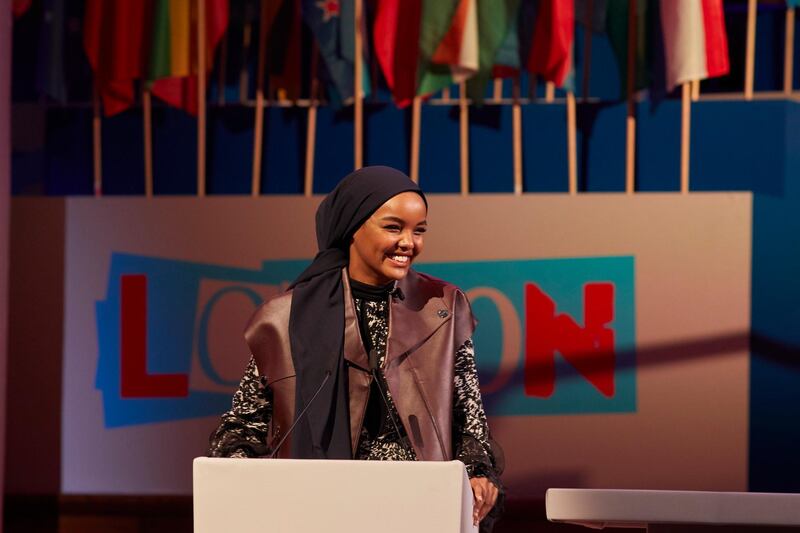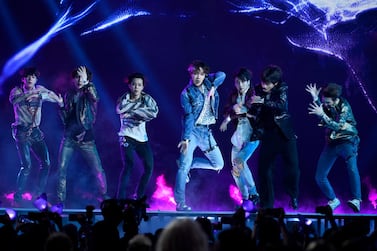Halima Aden is due to speak at Future of Fashion in Saudi Arabia next month. The event, which aims to support the kingdom's fashion sector, is scheduled to take place from Monday, November 4 to Wednesday, November 6, as part of Riyadh Season.
On the agenda are a host of seminars, workshops and panels discussions that will focus on the challenges, trends and current developments in the international and regional fashion sector. Riyadh Season, which was announced in September, is part of a raft of changes the kingdom is making to its culture sector. The Ministry of Culture earlier this year announced its vision and policies, specifying 16 cultural fields it will focus on developing – including fashion.
Speaking to The National at the One Young World conference in London on Thursday, Aden said she will conduct a talk and a Q&A session in Saudi. "I think it should be really exciting and a real first event there of this nature. I think there will be some pretty cool people there."
The 22-year-old American-Somali Aden rose to fame by becoming the first model to where a hijab at the Miss Minnesota USA Pageant, following which she signed a three-year contract with IMG models. She later became the first hijab-wearing model to walk international runways, and the first to wear a burkini on the cover of Sports Illustrated in April. Aden was born in Kenya at the Kakuma refugee camp where she lived until she moved to the United States at the age of six.
Although, she says she is happy with how diverse and inclusive the fashion industry has become, she concedes that more can be done. “There is so much in fashion that I don't get really see because I'm a model, but what about photographers, the editors, designers, the brands … the people who are actually making the magic happen? Are we diverse in that sense? I don't know, but I'm hoping we can be a little bit more inclusive.”
She cites Uoma Beauty, the first “Afropolitan” cosmetics company led by Nigerian Sharon Chuter. “I think that's a good example, too, of women who are behind the scenes and pushing this change, and what we can be doing to uplift them, celebrate them and support them. That's where I see we could be doing a little bit more.”






